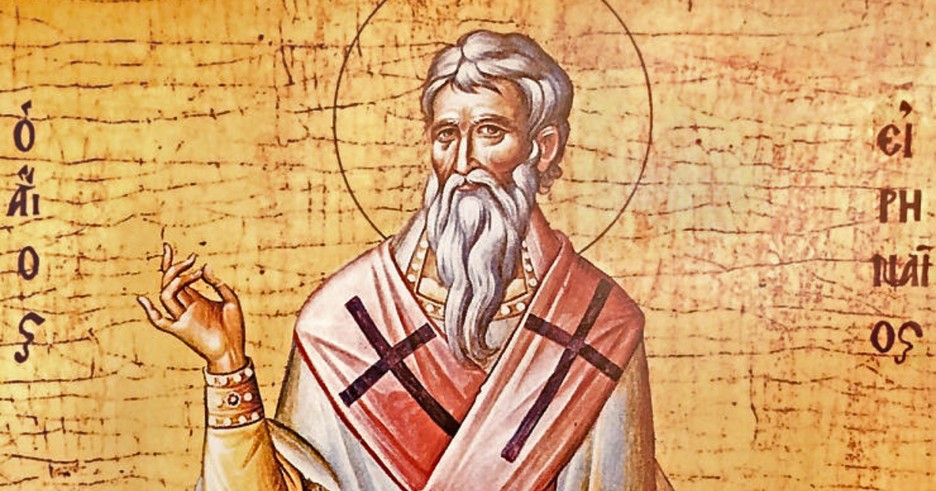
Have you ever wondered what an amazing institution, or fellowship, the Church of Jesus Christ really is? Over the past 2,000 years, countless organizations, governments, monarchies, and empires have come and gone. But the Church, from generation to generation, century to century, even millennium to millennium, has continued and grown. It hasn't been easy.
There have been times when its very existence has been gravely threatened by enemies without. Other times mortal danger has risen from false teachings from within the ranks. The church is only truly the church when it is faithful to the central core of teaching handed down by Jesus and his apostles. Since the very beginning, some have beguiled the church with heresies and false teachings that undermine the Gospel. What is so interesting is that the same old heresies keep reappearing. Centuries later, we can find these deviant teachings simply dressed in more modern terminology. Defenders of the faith have always had to come forth to expose heretical teachings and help the people of the Lord discern truth from error.
Who was Iranaeus?
One of the earliest and most notable of those who helped the Church stay on course was Irenaeus. His name means "peaceable." He was born between 115 and 125 AD in Smyrna (modern Izmir, in Turkey). Irenaeus often heard the aged Polycarp preach. Polycarp was a close associate of the apostle John, and Irenaeus treasured this close connection with an eyewitness of Christ's time on earth.
When Irenaeus was about forty or fifty, Polycarp sent him to Lyons in Gaul, now France, to help the aged Pothinus spread the gospel of Christ there. Irenaeus sponsored great missionary activity in France, but he also witnessed the furious persecutions of the heathen upon the Christians there. (See the previous issue, Glimpses # 51, for details of the barbaric tortures endured by the believers there in the year 177). It was Irenaeus who probably wrote the moving account of the martyrs of Lyons and Vienne, including the remarkable story of Blandina. The 92-year-old bishop Pothinus was among the martyrs of Lyon, and Irenaeus became bishop in his stead. Some reports say Irenaeus was killed in persecution against the Christians twenty-five years later. However, this is uncertain, and we do not know exactly how or when Irenaeus died.
The Threats from Within
Strange as it may seem, leading a flock that endured unspeakably perverse and harsh persecution wasn't the biggest problem for Irenaeus. A far more insidious threat came from heretics. Some said Jesus was only a spirit manifestation; others said He was only a man. Many of the heresies were forms of Gnosticism, the belief that people could be saved through special, secret knowledge. Like a physician studying a disease, Irenaeus analyzed the varieties of gnostic beliefs in detail and studied the Scriptures to combat the false ideas infecting the church. He wrote a multi-volume work called Against Heresies, clearly setting forth the basic doctrines shown in Scripture.
Gnostic Speculations
The gnostics taught a dualism in the universe and in God Himself. Marcion, for example, believed the cruel, creator God of the Old Testament had brought evil into the world and was totally distinct from the New Testament God of mercy. Marcion and other Gnostics also believed that matter and the physical world were evil, while the spiritual world was good. Irenaeus opposed gnostic dualism with the Scriptural doctrine of creation. There was one God who created the heaven, the earth, and all things in it. The creation was good, and evil came about only because of man's sin and rebellion. The Old and New Testaments together revealed the unity of God's plan of salvation. God was working in history to bring about the redemption of man and his world. The physical, material world was not evil in and of itself. The resurrection of the physical body was part of the Christian hope, which contradicted Gnostic theories.
The Elite, "Inside Track" to God
The Gnostics claimed they had secret teachings and writings of the apostles not open and available to the masses. Irenaeus countered by saying the truth of Scripture was authenticated by the churches established by the apostles. The tradition of interpreting the Scriptures in the churches established by the apostles was the norm for interpreting Scriptures and determining the apostolic faith. This teaching was public and open, not secret. Heresy was any opinion that contradicted and subverted this apostolic faith.
God's Creation is Good!
If, as the gnostics taught, the physical body was evil and could not be saved, then "the Lord did not redeem us with his blood, nor is the cup of the eucharist the communion of his blood, nor is the bread which we break the communion of his body." In attacking error with Scripture, Irenaeus came to a greater understanding of the truth. He summarized this truth in a Rule of Faith, which declared the faith of Christians in all ages.
He taught Christians in the second century, and he teaches us today to refute those who claim to be an elite group of believers with an inside track on the truth. He taught Christians to measure all teaching by the apostolic truths found in the Scriptures.
Not forgotten |



